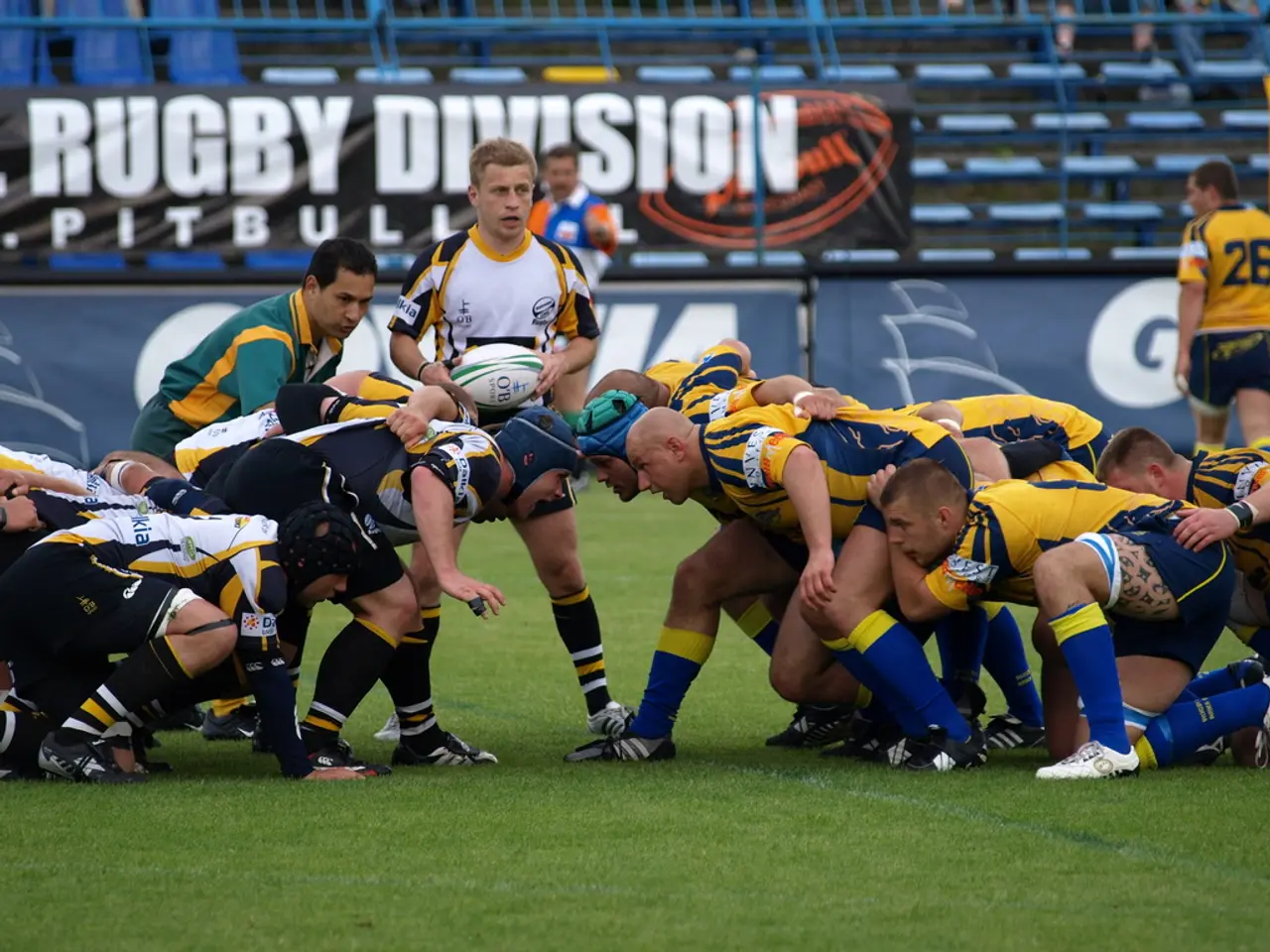Intense strains of professional rugby league on mental health revealed
Supporting Mental Health in Rugby League: A Comprehensive Approach
The world of professional sports, including Rugby League, is increasingly recognising the importance of mental health and wellbeing. Organisations are now providing resources aimed at developing resilience among athletes, understanding that a well-rounded approach that includes physical, mental, and emotional support will cultivate stronger, more resilient players.
Team dynamics play a significant role in an athlete's mental state. Healthy relationships foster a supportive environment, while fear of judgment can lead to isolation and the use of unhealthy coping strategies. Creating a supportive environment within teams encourages open dialogue about mental health issues, helping to break down the stigma that often surrounds these topics.
One of the key strategies for coping with the pressures of professional sports is the creation of supportive team environments. Coaches and staff work hard to foster inclusive atmospheres where athletes feel connected and comfortable voicing their concerns. Activities that build team bonding outside the field help reduce isolation, even when players are injured or absent, promoting mental wellbeing.
Emphasising work-life balance is another essential strategy. Athletes are encouraged to set boundaries between training and personal time, allowing for mental and physical recovery. Taking breaks, engaging in enjoyable non-sport activities, and spending time with loved ones support resilience against stress and burnout.
Mental health awareness and education are crucial components of this approach. Athletes often learn to recognise signs of mental health struggles in themselves and peers, promoting early intervention and de-stigmatising mental health conversations within teams and organisations.
Professional medical and psychological support is also vital. Rugby league systems, such as the NRL, have protocols for concussion management that include mental health assessments by specialists like neurologists and neuropsychologists, as head injuries can contribute to anxiety and depression. This multidisciplinary approach ensures players’ mental and cognitive health are monitored and managed closely.
Groups like League Ahead focus on supporting the physical, cultural, intellectual, and mental wellbeing of elite rugby league players, providing resources and advocacy specific to the pressures faced in this sport. Reflective practice and skill development are also key strategies, with players analysing performances to manage frustration and focus on controllable improvements, reducing anxiety around failure and improving confidence.
Despite progress, some reluctance to seek help remains, underscoring the importance of continued mental health education and supportive environments tailored to athletes' unique experiences. Stereotypes about emotional vulnerability can inhibit open conversations about mental health in sports, but efforts to destigmatise these issues are crucial in today's athletic world. Awareness campaigns aim to reduce athlete pressure and highlight coping strategies, encouraging athletes to seek help when they need it.
In sum, coping involves coordinated efforts at individual, team, medical, and organisational levels to address both the high-performance expectations and the stigma around mental health in rugby league. Engaging in group activities encourages camaraderie and strengthens team dynamics, while regular team-building activities can promote camaraderie and understanding, helping players connect emotionally. Building a strong team culture is an ongoing process, and the coaching style influences how athletes perceive their mental wellbeing.
References:
- League Ahead
- The Guardian
- The Daily Telegraph
- BBC Sport
- NRL
Read also:
- Everyday Life Protection Strategies in Emsland: Insights from Experts on Heat Resistance
- Lefties having a creative edge and greater athletic prowess - a common belief explored?
- Trauma-Induced Dissociative Conditions Related to Bond Attachment
- Understanding Cyclic Edema: Its Definition and Characteristics




